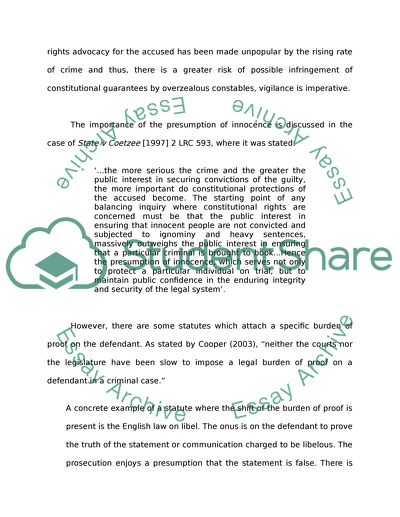Cite this document
(“Reversing the Burden of Proof Essay Example | Topics and Well Written Essays - 2000 words”, n.d.)
Reversing the Burden of Proof Essay Example | Topics and Well Written Essays - 2000 words. Retrieved from https://studentshare.org/law/1528640-reversing-the-burden-of-proof
Reversing the Burden of Proof Essay Example | Topics and Well Written Essays - 2000 words. Retrieved from https://studentshare.org/law/1528640-reversing-the-burden-of-proof
(Reversing the Burden of Proof Essay Example | Topics and Well Written Essays - 2000 Words)
Reversing the Burden of Proof Essay Example | Topics and Well Written Essays - 2000 Words. https://studentshare.org/law/1528640-reversing-the-burden-of-proof.
Reversing the Burden of Proof Essay Example | Topics and Well Written Essays - 2000 Words. https://studentshare.org/law/1528640-reversing-the-burden-of-proof.
“Reversing the Burden of Proof Essay Example | Topics and Well Written Essays - 2000 Words”, n.d. https://studentshare.org/law/1528640-reversing-the-burden-of-proof.


